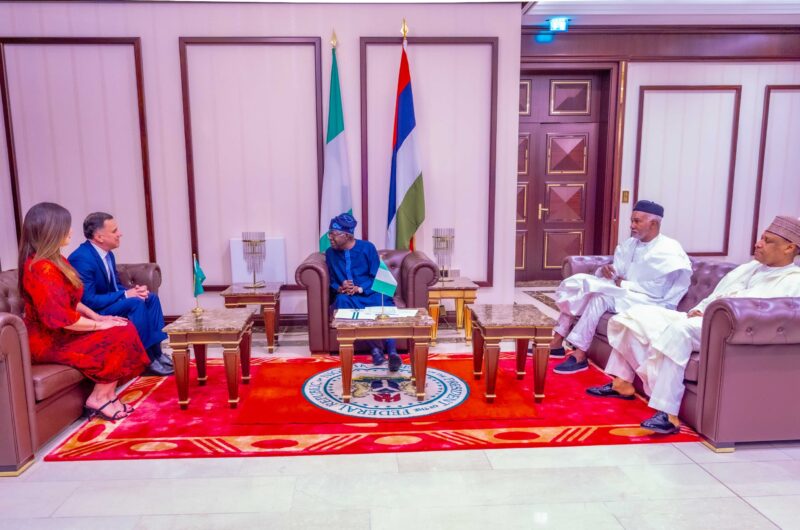Spotlights
Tinubu Urges Brazil to Invest in Nigeria’s Dairy Farming, Strengthen Economic Ties

On Thursday in Abuja, President Bola Tinubu encouraged the newly appointed Brazilian Ambassador to Nigeria, Carlos Jose Areias, to make the establishment of direct flights between Nigeria and Brazil a priority.
While receiving the Ambassador’s Letter of Credence, President Tinubu recalled his discussions on the issue with Brazilian President Luiz Inácio Lula da Silva during the African Union Summit in Addis Ababa, Ethiopia, last February.
The President expressed Nigeria’s commitment to working closely with Brazil to strengthen bilateral relations and advance shared priorities, welcoming the country’s presidency of the G20 in 2024.
”We have a long history of bilateral and cultural relations with Brazil. You must see Nigeria as your second home and explore the abundant economic opportunities in the country.
”I have been talking to some of my Brazilian friends concerning the prospects of investing in dairy farming in Nigeria. We are eager to push these investments forward.
”In my recent discussions with President Lula, we agreed to energize the economic development of our two countries, and I look forward to continuing that collaboration,” the President said.
In his remarks, Ambassador Areias said President Lula is looking forward to welcoming President Tinubu to the G20 Leaders’ Summit scheduled for November 18 and 19, 2024, in Rio de Janeiro.
He also conveyed President Lula’s invitation to Nigeria to join the Global Alliance against Hunger and Poverty.
He explained that the initiative, based on the value of food security, is the main proposal of the Brazilian presidency at the G20 to eliminate extreme poverty by 2030.
”I am in a country similar to Brazil, and I feel very much at home here with the culture, music, and people of Nigeria.
”I will do whatever I can to improve Brazil-Nigeria relations. Ten years ago, the volume of trade between our two countries was in the region of $10 billion, and I will work hard to improve on the number.
”Africa is top priority for President Lula and Nigeria is the most important country for us,” the Brazilian Ambassador said.
President Tinubu also received the Letter of Credence from Ghana’s High Commissioner to Nigeria, Vice-Admiral Seth Amoama (Rtd).
President Tinubu commended Ghana’s active participation in ECOWAS and reaffirmed Nigeria’s commitment to strengthening relations with its West African ally.
”You must feel at home in Nigeria. Our doors are always open and I wish you a pleasant stay in the country,” the President told the High Commissioner and former Chief of the Defence Staff (CDS) of Ghana, who is an alumnus of the University of Ibadan and fellow of the National Defence College, Abuja.
High Commissioner Amoama expressed Ghana’s steadfast support to Nigeria’s leadership of ECOWAS Authority of Heads of State and Government.
”We will continue to support the able leadership of President Tinubu in every way possible,” the Ghanaian High Commissioner said.
Join the The Papers WhatsApp Channel For Quick Access To News, Videos and Other Interesting Scenes Around You.
https://whatsapp.com/channel/0029Van1dBNEwEjugDT6KU41













